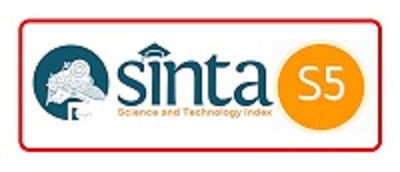Activity-Based Costing Adoption Rates in Tanzanian Manufacturing and Service Sectors: A Comparative Study
DOI:
https://doi.org/10.29240/disclosure.v4i2.9777Keywords:
Activity-Based Costing, Adoption Rates, Manufacturing Sector, Service Sector, Comparative StudyAbstract
The overall objective of this study was to ascertain the difference in ABC adoption rates between the manufacturing and service sectors in Tanzania. Based on the cross-sectional survey design, primary data were collected from 188 companies located in Dar Es Salaam, Arusha and Dodoma regions. The inferential statistics from chi-squared (X2) test results revealed that, p= 0.692 in country-wide was greater than 0.05, hence failed a condition to reject a null hypothesis (H0). It was therefore concluded that, the difference in ABC adoption rates between the Tanzanian manufacturing and service sectors was not statistically significant. This conclusion was consistent in all the three research areas including Dar es Salaam (p= 0.622), Arusha (p= 0.193) and Dodoma (p= 0.986). The results give the implication that, a policy to be developed by a Tanzanian government to address the problem of low rate of 1.1% ABC adoption, should be uniform to both the manufacturing and service sectors. It is also important to note that, the results suggested an equal allocation of resources across both sectors in fostering companies to adopt the system.
Downloads
References
Ahmad, K., Zabri, S. & Teng, N. (2017). The Implementation of Activity-Based Costing in Malaysian Small and Medium-Sized Enterprises. Advanced Science Letters, 23(4), 3170 3173. Doi: 10.1166/asl.2017.7692.
Al-Dhubaibi, A. (2021). Optimizing the Value of Activity-Based Costing System: The Role of Successful Implementation. Management Science Letters, 11(1), 179 - 186. Doi: 10.5267/j.msl.2020.8.017.
Almeida, A., & Cunha, J. (2017). The implementation of an Activity-Based Costing (ABC) system in a Manufacturing Company. Procedia Manufacturing, 13, 932-939. Doi: 10.1016/j.promfg.2017.09.162
Anderson, W. & Sanga, J. (2018). Academia-Industry Partnerships for Hospitality and Tourism Education in Tanzania. Journal of Hospitality and Tourism Education, 31(1). Doi: 10.1080/10963758.2018.1480959.
Andretsch, D., Kritikos, A. & Schiersch, A. (2020). Microfirms and Innovation in the Service Sector. Small Business Economics, 55, 997 - 1018. Doi: 10.s1187.020-00366-4.
Babaaddoun, M. & Ait-Mohammed, M. (2023). The Comparison Between Activity-Based Costing and Traditional Costing That Practiced in Algerian Manufacturing Corporation. International Journal of Economic Performance, 4(3).
Bacci, S., Cirillo, A., Mussolino, D. & Terzani, S. (2018). The Influence of Family Ownership Dispersion on Debt Level in Privately Held Firms. Small Business Economics, 51, 557 - 576. Doi: 10.1007/s11187-017-9930-2.
Berg, Y. & Madsen, D. (2020). The Historical Evolution and Popularity of Activity-based Thinking in Management Accounting. Journal of Accounting & Organizational Change, 16(3), 401 – 425. Doi:10.1108/JAOC-03-2020-0030.
Bigambo, P., Marandu, S. & Elias, E. (2023). Product Costing and Pricing in Small and Medium Enterprises in Tanzania. Tanzania Journal of Engineering and Technology, 42(2). Doi: 10.52339/tjet.v42i2.915.
Bishoge, O. & Mvile, B. (2020). The “Resource Curse” from the Oil and Natural Gas Sector: How Can Tanzania Avoid it in Reality? Miner Econ 33, 389 – 404. Doi: 10.1007/s13563-020-00235-2.
Boru, T. (2018). Research Design and Methodology. Retrieved from researchgate.net. Doi: 10.131.40/RG.2.2.21467.62242
Chepachenko, N., Leontiev, A., Uraev, G. & Polovnikova, N. (2020). Features of the Factor Models for the Corporate Cost Management Purposes in Construction. Conf. Ser.: Mater. Sci. Eng. 913. Doi: 10.1088/1757-899X/913/4/042075.
Downloads
Published
How to Cite
Issue
Section
Citation Check
License
Copyright (c) 2024 Godfrey Frank Molela, Pendo Shukrani Kasoga, Ismail Juma Ismail

This work is licensed under a Creative Commons Attribution-ShareAlike 4.0 International License.
Authors who publish with this journal agree to the following terms:
- Authors retain copyright and grant the journal right of first publication with the work simultaneously licensed under a Creative Commons Attribution License (CC BY-NC-SA 4.0) that allows others to share the work with an acknowledgment of the work's authorship and initial publication in this journal.
- Authors are able to enter into separate, additional contractual arrangements for the non-exclusive distribution of the journal's published version of the work (e.g., post it to an institutional repository or publish it in a book), with an acknowledgment of its initial publication in this journal.
- Authors are permitted and encouraged to post their work online (e.g., in institutional repositories or on their website) prior to and during the submission process, as it can lead to productive exchanges, as well as earlier and greater citation of published work (See The Effect of Open Access).







